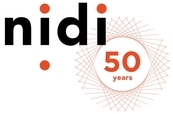NIDI has been involved in surveys on the acceptance and effectiveness of population-related policies since 1983. During that decade, it also began a cooperation with the Institute for Research on Population and Social Policies in Rome. Joint research activities culminated in the European Comparative Study on the Acceptance of Population-related Policies, carried out in close cooperation with the United Nations. Surveys were carried out in nine European countries, collecting information on the attitudes and behaviour regarding fertility and the potential impact that social policies might have on family, ageing, migration and reproductive intentions.
Zooming in on the differences between the two founding countries of the earlier studies showed that attitudes towards family and parenthood proved to be more favourable in Italy than in the Netherlands. This tendency was confirmed in the more recent surveys in the European study. There is a basic similarity at the level of values and life aspirations, but important differences do exist in the realization of these values. They depend on a different evaluation of the effects of parenthood on personal lifestyle. In Italy for instance, 43 per cent of the respondents think that it is their duty towards society to have children, compared to eight per cent in the Netherlands. About one in every four Italian women prefers to work full-time, to only seven per cent of women in the Netherlands.
| Also view a corresponding VIDEO on the Generations and Gender Programme (GGP) |  |
In 2020 we celebrated our 50th anniversary as the national demographic institute of the Netherlands. Here we look back at 50 years of NIDI research and relate that to our current research. We present insights and landmarks from some of the studies that have been conducted in the past, combined with short videos of early career scholars at NIDI, presenting current research projects on similar topics.
Back to: NIDI 50 Years • Cross sections of population research
